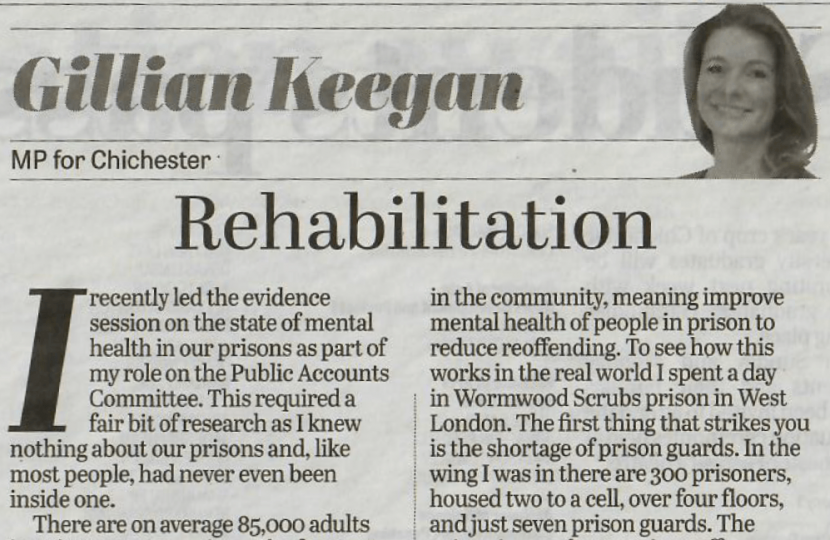
I recently led the evidence session on the state of mental health in our prisons as part of my role on the Public Accounts Committee. This required a fair bit of research as I knew nothing about our prisons and, like most people, had never even been inside one. There are on average 85,000 adults in prison at anyone time. The focus on mental health in prisons comes as a result of shocking rises in self-inflicted deaths, which have doubled since 2012 and have been linked to mental health needs in 70% of cases. Another sign of deteriorating mental health in our prisons is the highest number of self-harm incidents on record, over 40,000 in 2016, which is the equivalent of almost one incident for every two prisoners, although some prisoners will self-harm multiple times.
One in four adults are diagnosed with a mental health problem during their life and research suggests that people in prison are more likely to suffer from poor mental health than people in the community.
We spend over £400m each year on mental and physical healthcare in our prisons. Aiming to provide an equivalent service to that in the community, meaning improve mental health of people in prison to reduce reoffending.
To see how this works in the real world I spent a day in Wormwood Scrubs prison in West London. The first thing that strikes you is the shortage of prison guards. In the wing I was in there are 300 prisoners, housed two to a cell, over four floors, and just seven prison guards. The prison is 30% down on its staff numbers and is struggling to recruit as low unemployment in London creates competition for staff. Despite this, wandering around chatting to prisoners, the place felt incredibly safe. I wasn’t expecting that! Most people I spoke to were not hardened prisoners just men who had taken a wrong turn in life and were struggling to get back on track. Prison doesn’t help as even though there is access to work and educational services, there is also access to mind numbing drugs such as spice and endless hours spent locked in a cell. I was left feeling that the provision of better mental health services was needed. Focusing on rehabilitation and better links to support people as they leave prison, this would greatly improve the lives of many people in prison, and reduce re-offending rates dramatically.

